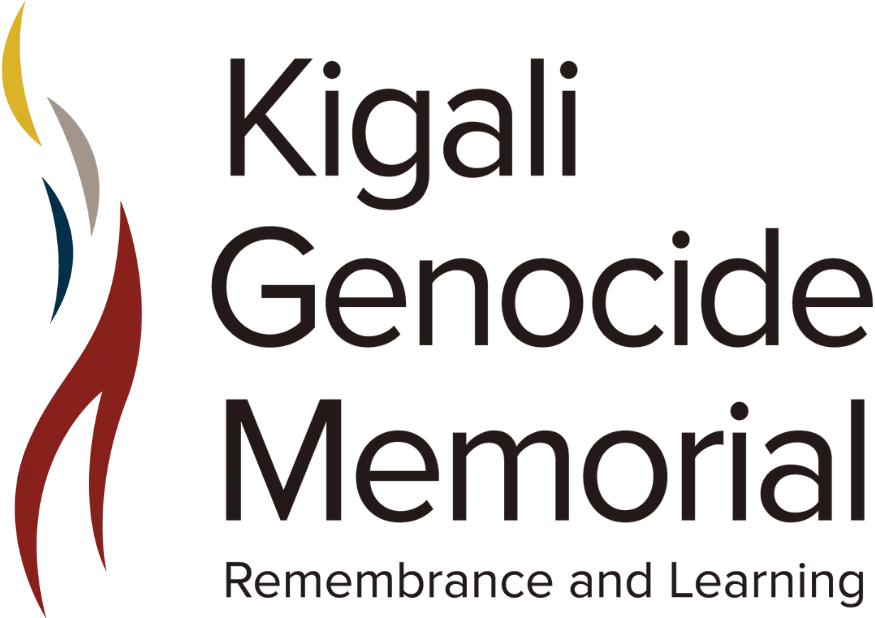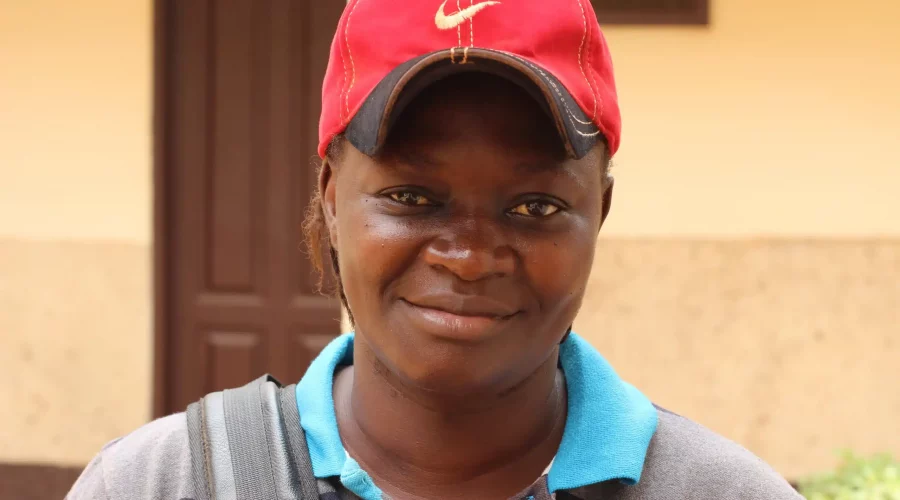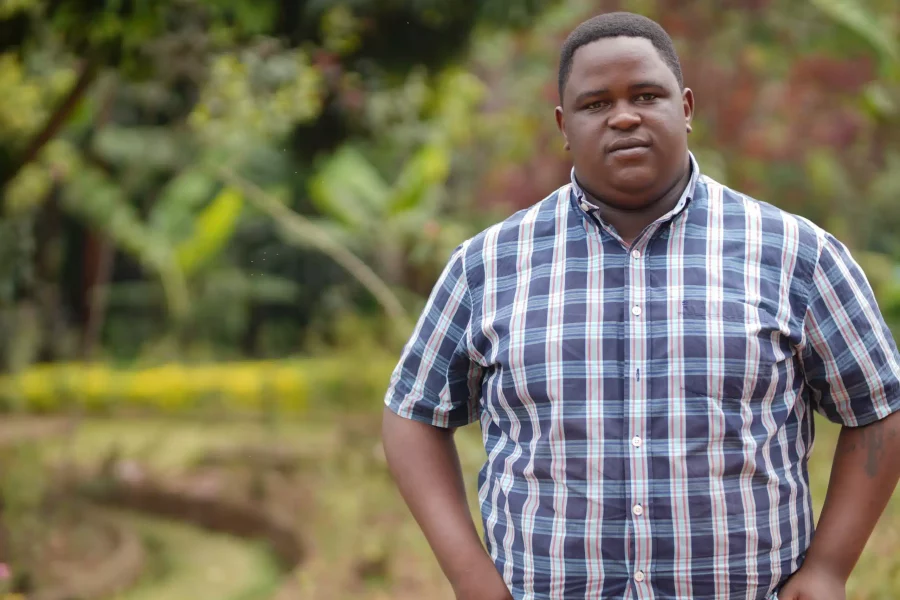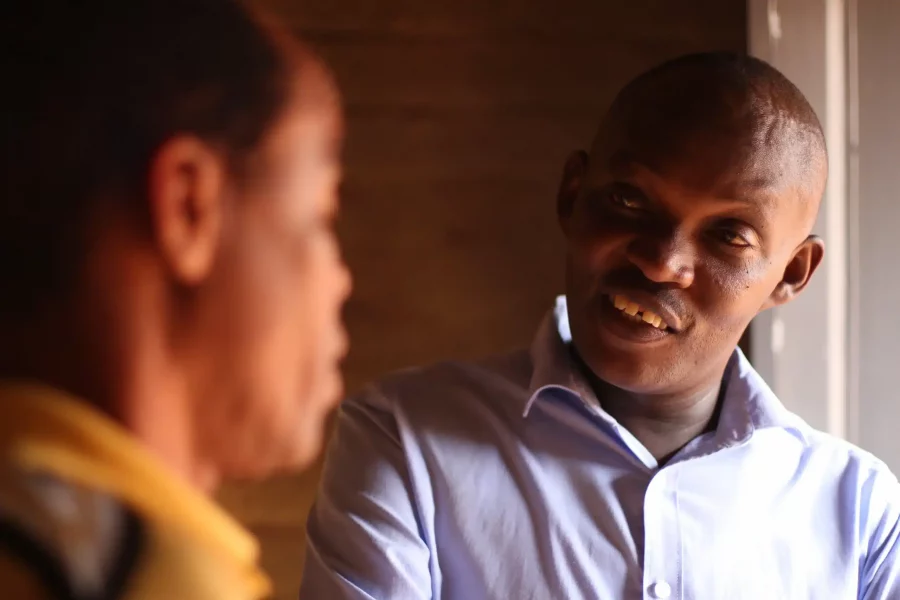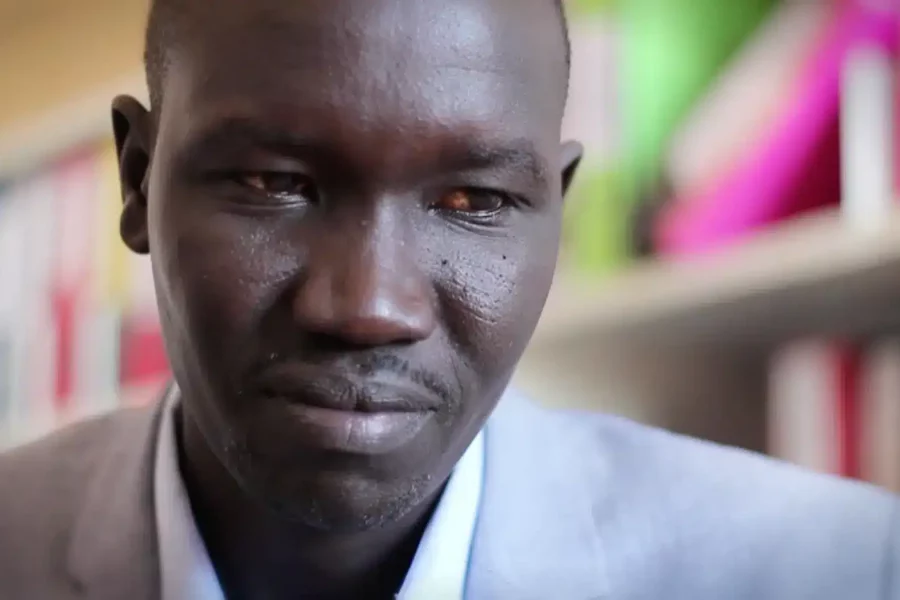In 2013 Kadjidjia was a law student in Bangui, married to Justin – a high school teacher – and the couple had a little girl. Justin was Christian. Kadjidjia was Muslim. “There was no problem between us regarding our religious faith.”
Kadjidjia’s studies were cut short when Seleka militia captured Bangui in March 2013.
Stopped in the street by Seleka militia, Justin was asked whether he was Muslim or Christian. When he confirmed he was Christian, they shot him dead. “I heard the shots,” remembers Kadjidjia. “When I saw him, I passed out. My husband was my eyes, my hands and my feet. I didn’t know what to do.”
Seleka militia then burned down their family home. Kadjidjia moved away, but two months later, a younger man she knew and trusted like a brother made unwanted advances. When she rejected him, he went to the Anti-Balaka militia and lied that she was hiding weapons.
The Anti-Balaka surrounded Kadjidjia’s house. “I said to my child, “If I am killed by these men, you must study, succeed and take care of your grandma.”
For two days, Kadjidjia was interrogated and tortured by the Anti-Balaka. Then they called their commander, General Andjilo, to decide if she should be executed. Andjilo realised Kadjidjia’s husband had been his teacher. He let her go.
Obtaining an assault rifle and grenades to take revenge on the man who betrayed her, Kadjidjia set up an ambush. He was running a motorcycle taxi service. She would get a ride and lead him to men lying in wait with her weapons. However, when neighbours saw them setting off, she realised she would be a suspect if her betrayer was killed, so she called off the ambush.
“I was still planning revenge when I joined Aegis peace training,” she says. “After we went through trauma healing and the forgiveness exercise, my trauma was gone. I had given up my desire for revenge. That night I was able to sleep normally again.”
She turned in her weapons, went to the man she had intended to kill, and forgave him. “Forgiveness is little by little. It’s a process,” she says. “But I have forgiven that young man now, and he is still part of our lives.”
